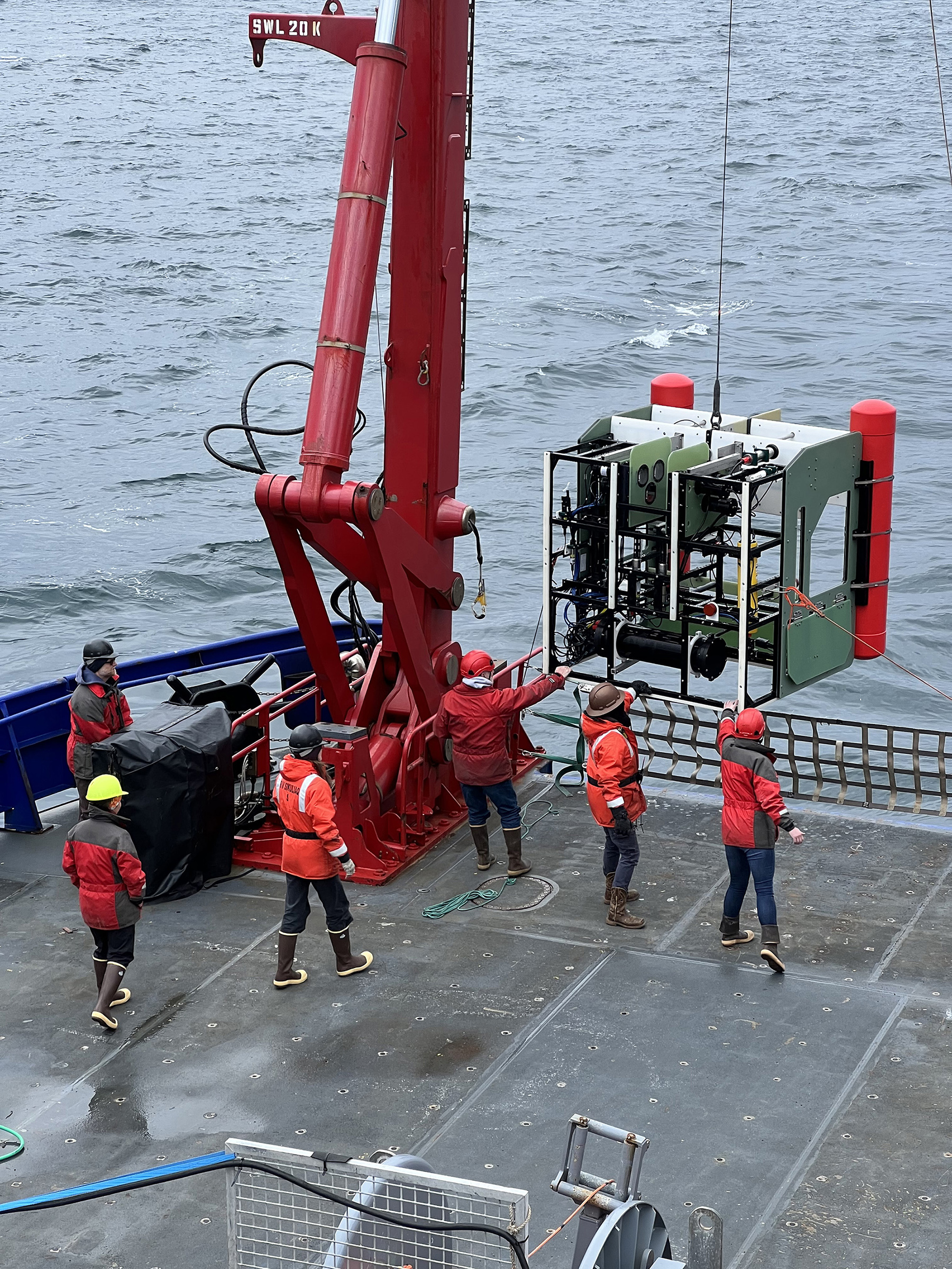UAF scientists contribute to long-term climate change overview
Jeff Richardson
907-474-6284
Sept. 19, 2022

A Deep Plankton Imager is deployed off the deck of the research vessel Sikuliaq in the Gulf of ҐҐҐ╜┤л├╜ earlier this year. The device images water for zooplankton, uses acoustics to look at fish communities, and measures temperature, salinity, light, oxygen, nitrate, phytoplankton biomass, and particle abundance several times per second.
University of ҐҐҐ╜┤л├╜ Fairbanks scientists played key roles in a recently released report about the effects of climate change at dozens of long-term research sites around the world.
The report, , reviewed four decades of data collected through the National Science FoundationтАЩs Long-Term Ecological Research program. The LTER program findings explore the effects of climate change in four types of environments: marine, dryland, coastal, and forest and freshwater.
UAF contributors to the include Glenn Juday, professor emeritus of forest ecology; Roger Ruess, professor emeritus at UAFтАЩs Institute of Arctic Biology; and Jeremy B. Jones, a professor of biology at IAB. Russell Hopcroft, a professor of oceanography at UAFтАЩs College of Fisheries and Ocean Sciences, contributed to the of the report. The research vessel Sikuliaq, a National Science Foundation ship operated by UAF, played a significant role in LTER work in the Gulf of ҐҐҐ╜┤л├╜.
The overview included data collected from the Bonanza Creek LTER, a boreal forest research site that UAF has maintained since the 1980s. It experienced the greatest increase in average annual temperature from 1980 to 2019, 0.70 degrees Fahrenheit per decade, of nine forest LTER sites.
Bonanza Creek has also had a sustained period of relatively wet summers in recent years, although itтАЩs unknown if that will represent a long-term trend.
тАЬScenarios of possible future climates donтАЩt agree on important aspects of the direction of climate change in ҐҐҐ╜┤л├╜,тАЭ Juday said. тАЬGiven the outsized magnitude of change experienced in the boreal world already, interest in monitoring and understanding effects on ecosystems is likely to remain high.тАЭ
Moisture variability and air temperature have increased since 1930 at all of the 28 LTER sites, which span from the Arctic to Antarctica. Ecosystem responses to climate change are just beginning to emerge, according to the study, making тАЬlong-term research crucial to understand, mitigate, and adaptтАЭ those changes.
ADDITIONAL CONTACT: Russell Hopcroft, 907-474-7842, rrhopcroft@alaska.edu; Glenn Juday, gpjuday@alaska.edu
NOTE TO EDITORS: The full paper is available at


